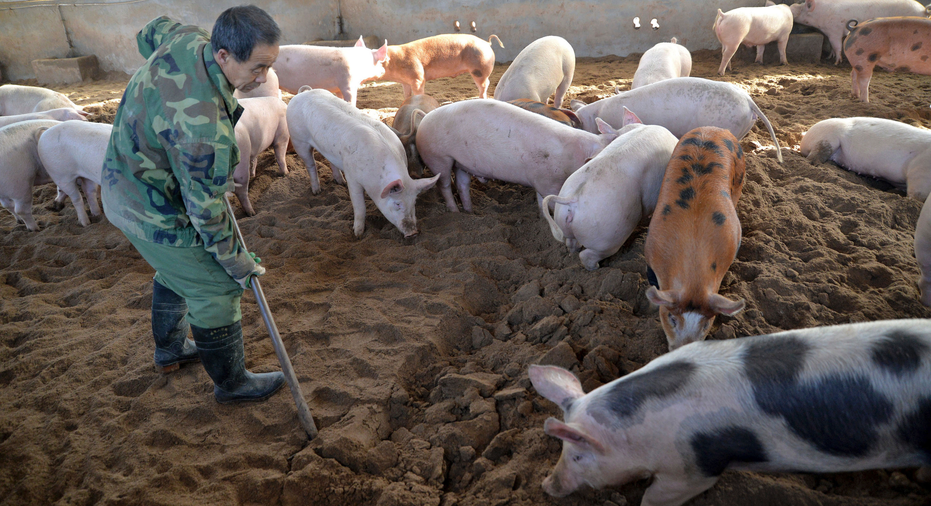Heavily pork-reliant China battling African swine fever

BEIJING – China, the world's largest producer of pork, is battling an African swine fever outbreak that could potentially devastate herds.
The disease, which only affects pigs and wild boar, has been detected in at least three locations across the vast country. Thousands of pigs have died or been culled in an effort to curb the spread of the highly contagious viral disease.
The appearance of the disease comes as China seeks to shift pig rearing from farmyards to vast breeding operations where waste and the spread of disease can be better controlled.
China produces as many as 600 million pigs annually and pork is a staple of the Chinese diet, accounting for more than 60 percent of animal protein consumed.
The fluctuating price of the staple meat is highly sensitive and the government maintains a large frozen supply to release when prices rise too high. Soaring demand for more meat and richer diets over recent years have brought massive profits to large firms able to harness the latest technology for improved efficiency.
In the eastern city of Lianyungang, 15,000 pigs have been culled after an outbreak was detected last week, according to the Ministry of Agriculture. Inspectors found 615 pigs had been infected and 88 died. Measures are also being taken to disinfect contaminated areas and block the disease's spread to other farms.
Earlier this month, Shenyang in the northeast reported China's first outbreak of the disease, with 47 pig infected, all of which died, the ministry said. Infected pigs were also found last week at a slaughterhouse in the city of Zhengzhou, where they had been transported from Jiamusi in the far north. Authorities were looking into the source of that outbreak in which all 30 of the infected pigs died.
African swine fever outbreaks have also been reported in the European Union, chiefly in the Baltics, Poland and Romania.
Denmark plans to erect a 70-kilometer (43.4-mile) fence along the German border to keep out wild boars, in the hope of preventing the spread of African swine fever, which stands to jeopardize the country's valuable pork industry.



















